28 iconic photos from every modern Summer Olympic Games
Athens, 1896: The 1896 games were the first international Olympic Games held in the modern era. They brought together the largest international participation of any event to that date, and the stadium sold out to massive crowds. In this image, members of the winning German gymnastics team show their routine on the parallel bars in front of spectators.

Paris, 1900: This year marked the first in which women were allowed to compete in the Olympic games. Pictured is one of the first female tennis players. Winners of the 1900 Olympics were awarded cups and trophies instead of medals.
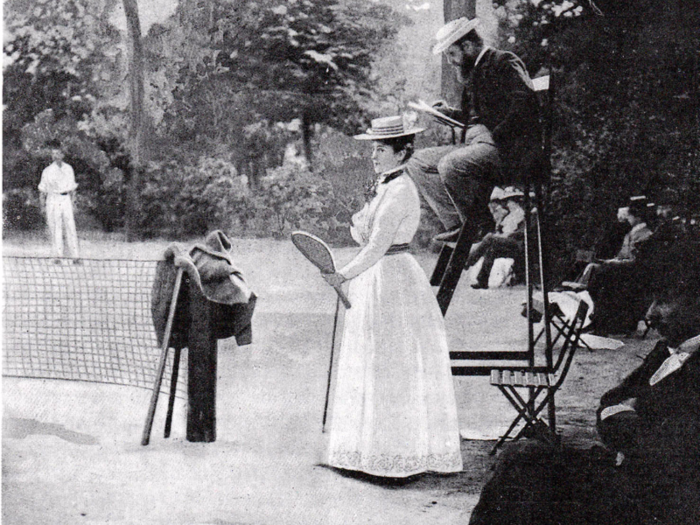
St. Louis, 1904: The hosting of the Olympic games in St. Louis, USA, marked the first time they had been held in a majority English-speaking nation, and also the first time they had been held outside of Europe.
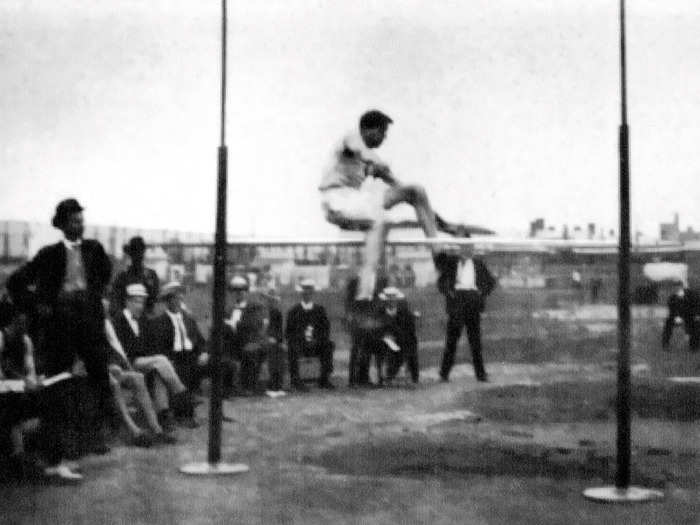
London, 1908: The eruption of Mount Vesuvius? in 1906 meant the games were relocated from Rome to London on financial grounds. This image shows spectators gathering as Great Britain, represented by the Leander club, beats Belgium to win gold in the rowing.
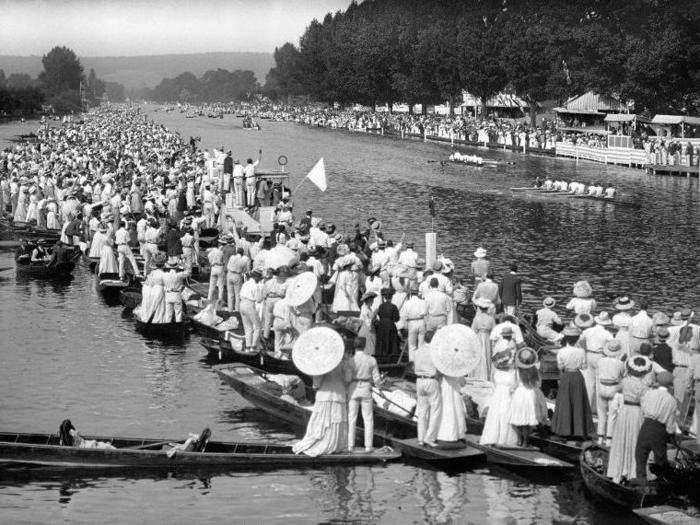
Stockholm, 1912: The Swedish Olympic games in 1912 were the first to feature women's diving, women's swimming, and both the decathlon and the new pentathlon. Pictured is Great Britain's first female swimming team, who went on to win gold.
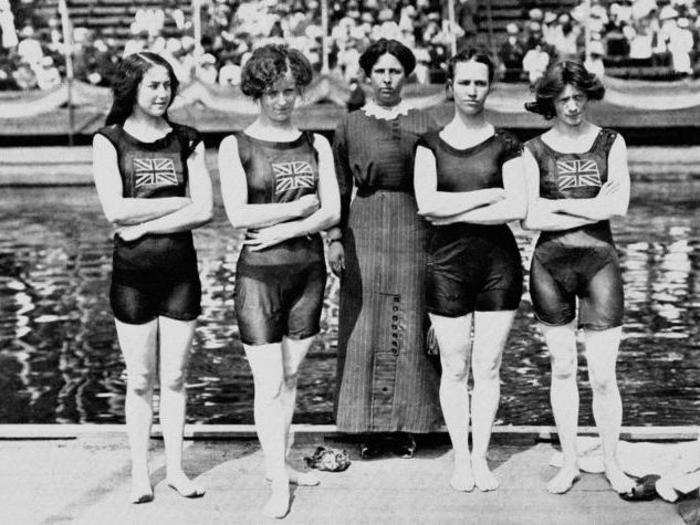
Antwerp, 1920: The Olympics moved to Antwerp in the hope of bringing together a city devastated by World War I. Below, Great Britain's Max Woosnam (top left) and partner Oswald Turnbull play against Ichiya Kumagae and Seiichiro Kashio of Japan. Great Britain won the match to claim the Gold Medal.
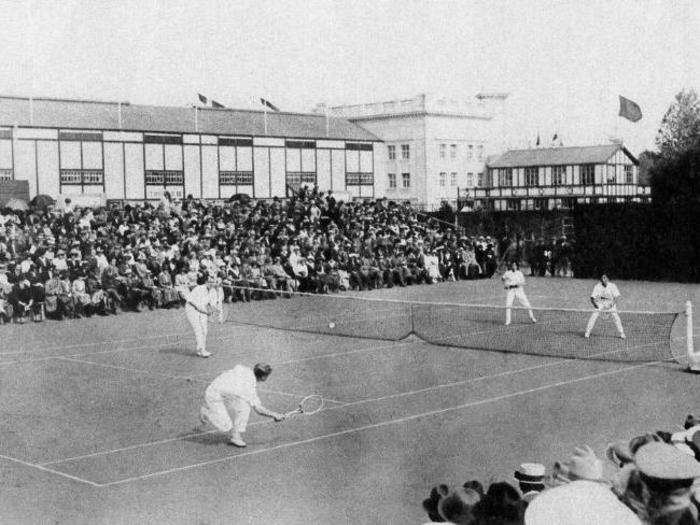
Paris, 1924: The Olympics returned to France for the second time in 1924. With a total cost of 10 million francs and a return of just over 5 million francs, they incurred a huge financial loss despite healthy attendances.
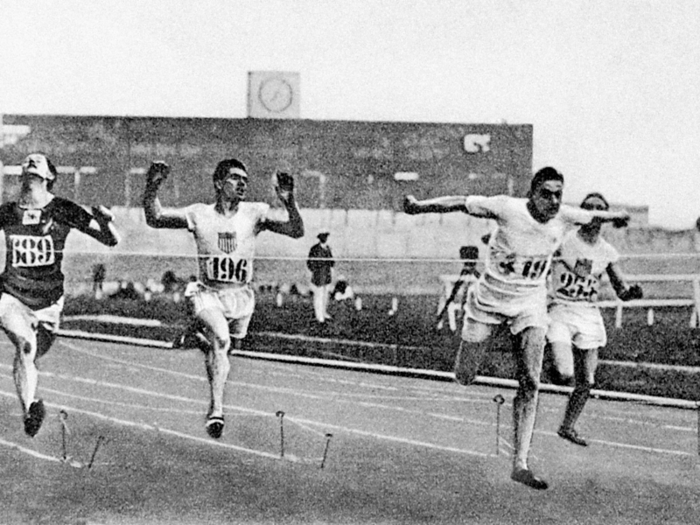
Amsterdam, 1928: The USA's Peter Desjardins went on to win gold in the highboard and springboard diving.
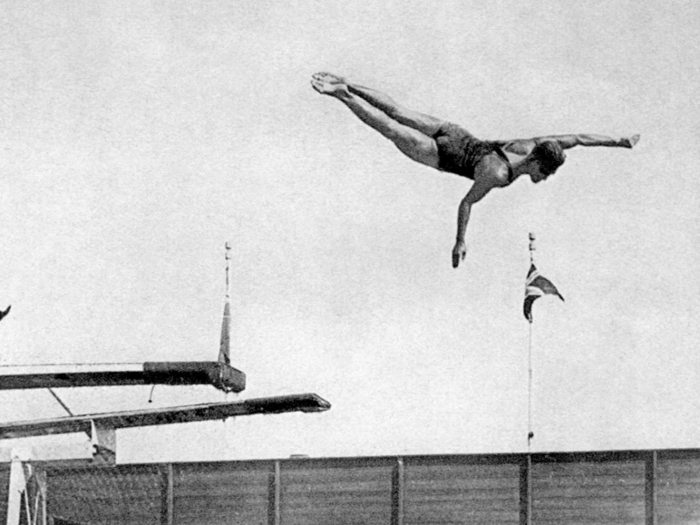
Los Angeles, 1932: As the only contender to put forward a bid for the 1932 Olympics, the games moved to Los Angeles. They were hosted during the Great Depression, meaning many nations and athletes were unable to afford the trip to the US.
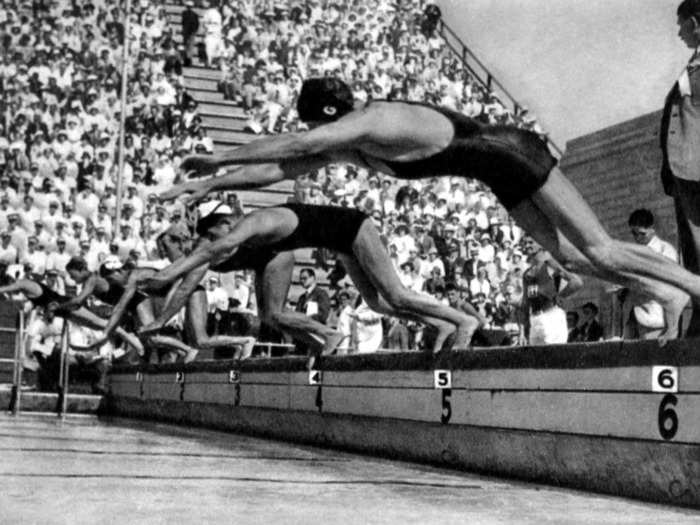
Berlin, 1936: With the Nazi regime at the peak of its power, Adolf Hitler was responsible for officially declaring the Berlin games open. The regime promoted a facade of a new, strong Germany, while the country's abuse of human rights lead the rest of Europe and the United States to call for a boycott of the event, which ultimately failed. This was the last Olympic games before the outbreak of WWII.
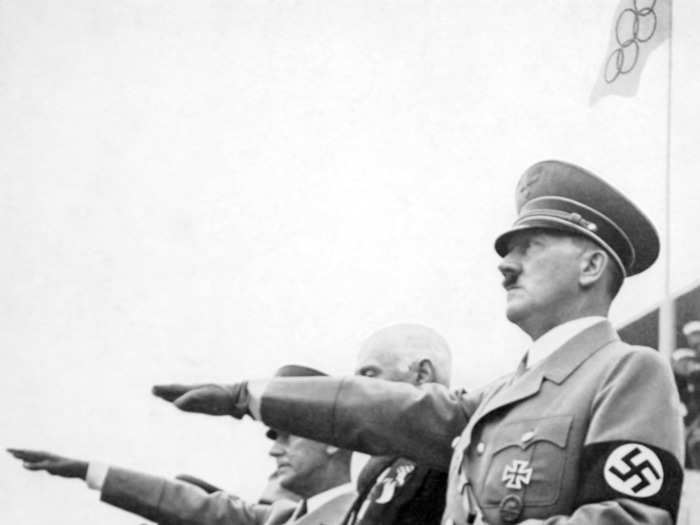
London, 1948: Two years after the end of World War II, the Olympics returned to London for a second time.
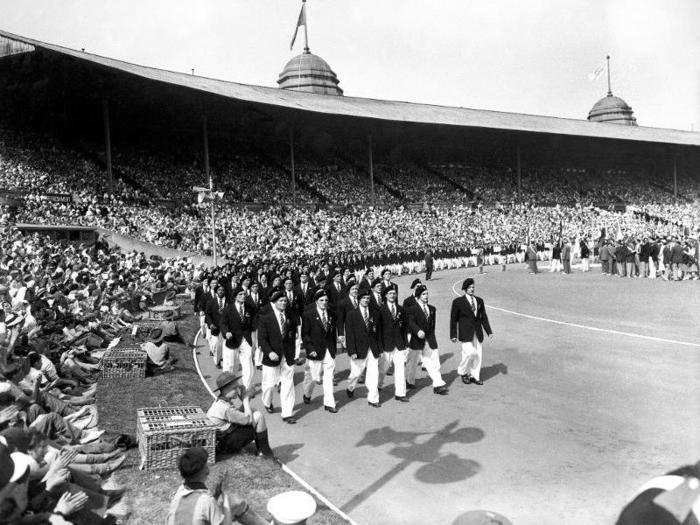
Helsinki, 1952: Team USA's Milt Campbell, centre, won the fifth heat of the 110-metre hurdles event in the Olympic decathlon. Campbell, who became the first black person to win the Olympic decathlon in 1956 and later became a motivational speaker, died in 2012 after a battle with prostate cancer. He was 78.
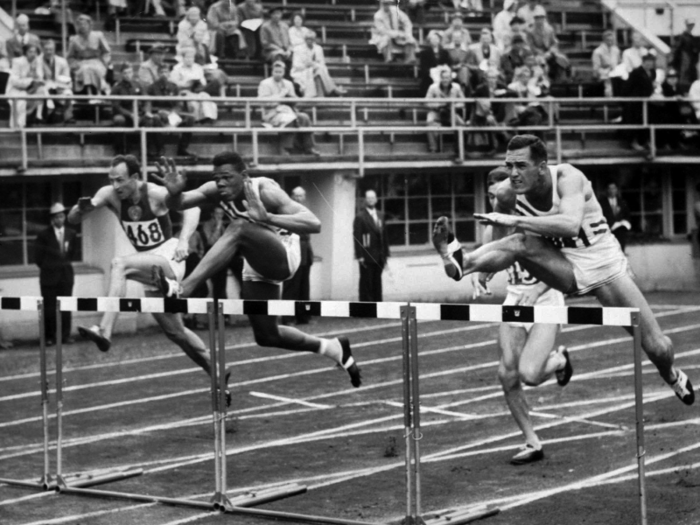
Melbourne, 1956: USA's Lee Calhoun won gold from teammates Jack Davis who won silver, and Joel Shankle who won bronze.
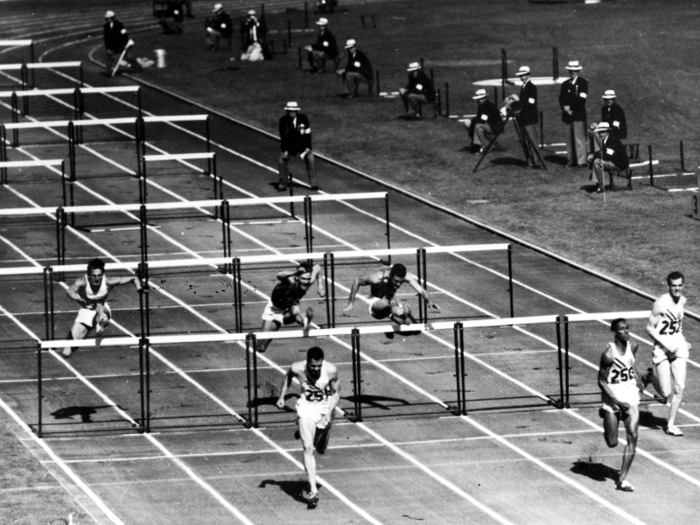
Rome, 1960: An 18-year-old Cassius Clay — later known as Muhammad Ali — from Louisville won gold at the 1960 Olympics before going on to become a world champion. These games were the first to be commercially broadcast and also the first to feature a major doping scandal. Danish cyclist Knud Enemark Jensen collapsed during his race under the influence of Roniacol and died the same day.
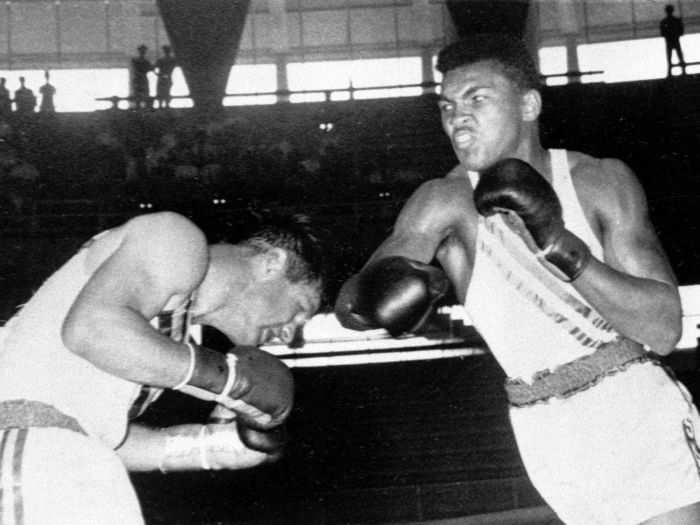
Tokyo, 1964: The Tokyo Olympics were the first to be held in Asia, the first to feature colour broadcasting, and also the first to ban South Africa from participating due to its apartheid laws.
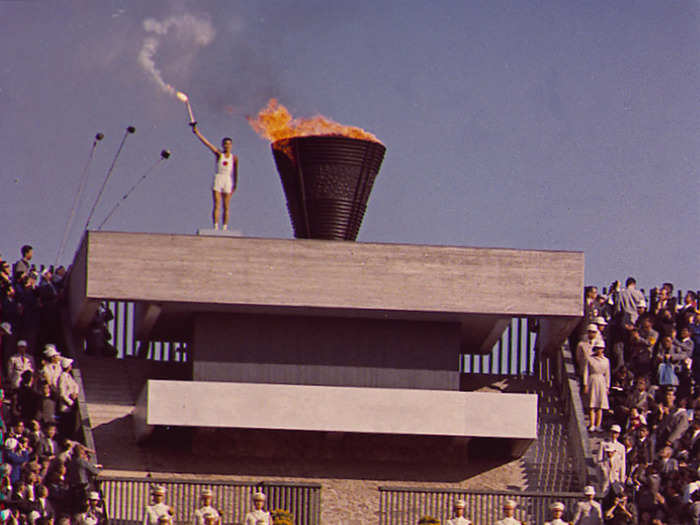
Mexico, 1968: While on the podium, US medal winners Tommie Smith and John Carlos raised their fists in silent protest against the continued racial discrimination against black people in the US. They were booed by many people in the crowd and the International Olympic Committee condemned their actions, calling it "a deliberate and violent breach of the fundamental principles of the Olympic spirit."
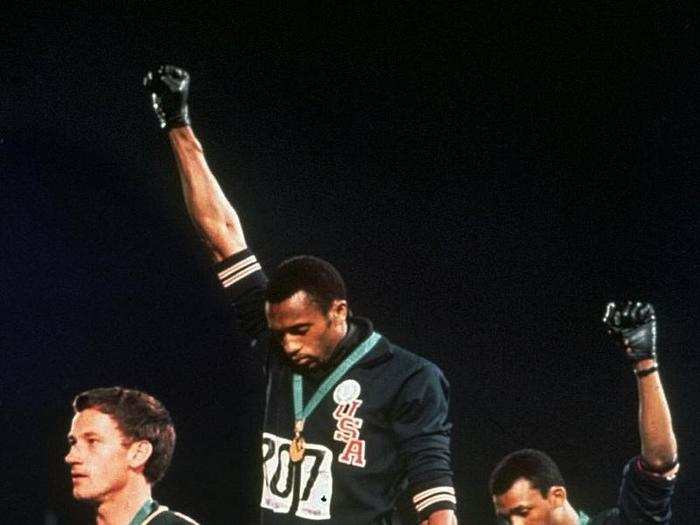
Munich, 1972: The games of 1972 had a dark shadow cast over them after 11 Israeli athletes were murdered in their accommodation by Palestinian terrorists. This photo shows Ankie Spitzer, widow of the Israeli fencing coach, Andre Spitzer, surveying the room where the incident occurred at Munich's Olympic Village. Chalk circles outline bullet holes in the wall.

Montreal, 1976: The USA's Bruce Jenner became one of the country's most celebrated athletes this year by winning gold. This photo shows him clearing the bar during the pole vault discipline of the decathlon. 22 African nations boycotted the Olympics in 1976 after New Zealand sent its national rugby team to play in South Africa, which was under apartheid rule.
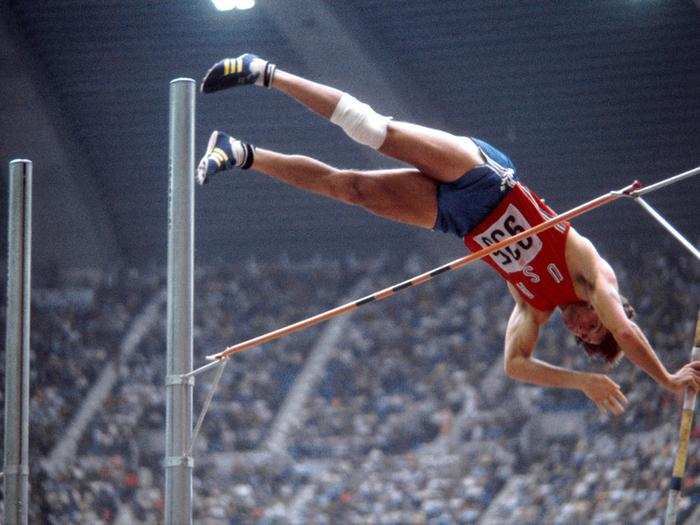
Moscow, 1980: With the Cold War ongoing, the US boycotted the Moscow games and also urged their allies to do the same to protest the Soviet invasion of Afghanistan. This image shows the USSR's Yelena Davydova in action on the beam.
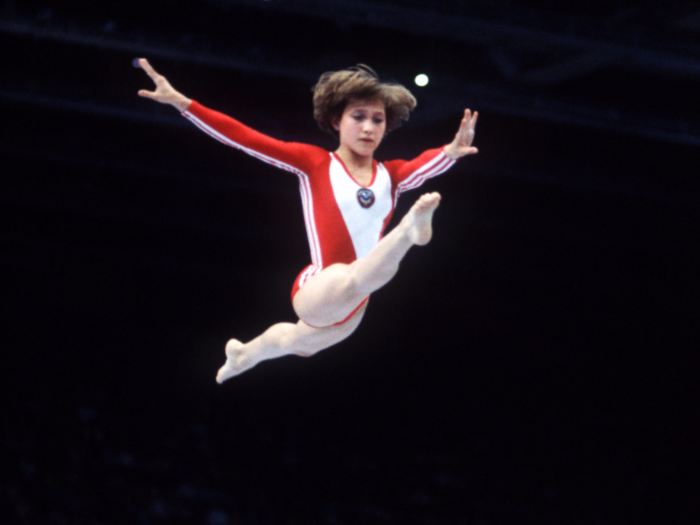
Los Angeles, 1984: Great Britain's Seb Coe celebrates as he crosses the line to win gold in the 1500m from teammate Steve Cram and Spain's Jose Abascal. In response to the US' boycott of Moscow in 1980,14 Eastern Bloc countries and allies of the Soviet Union refused to attend the Los Angeles games in retaliation.
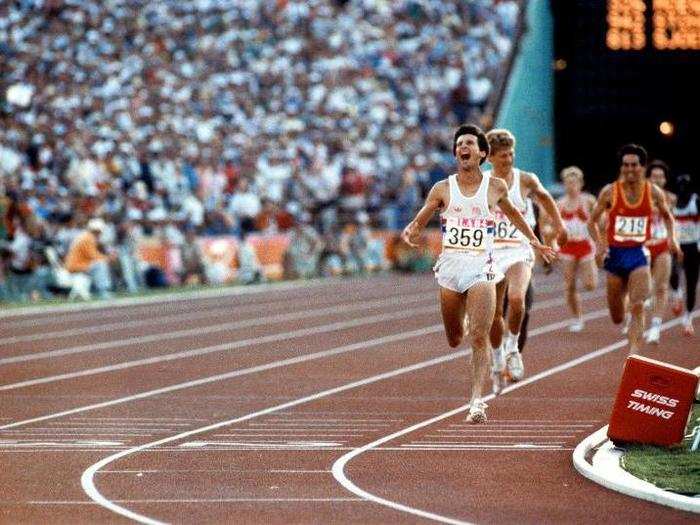
Seoul, 1988: Florence Griffith Joyner fell to her knees after smashing the world record for the fastest time to complete the 200-metre Olympic final. Joyner died just 10 years later in 1998 of an apparent heart seizure. She was 38.
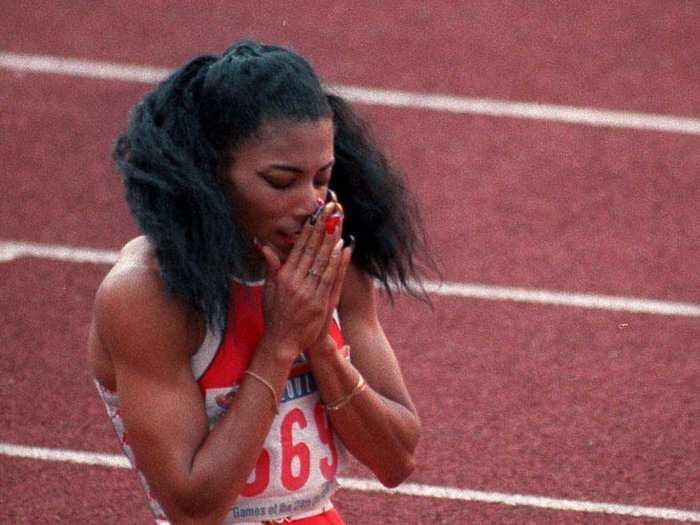
Barcelona, 1992: The USA's David Robinson crushed Croatia's Franjo Arapovic on his way to the hoop during his team's gold medal game. This was the first time NBA professionals — including Michael Jordan — had been chosen to play in the Olympics. They were called the "Dream Team" and sailed through to finals.
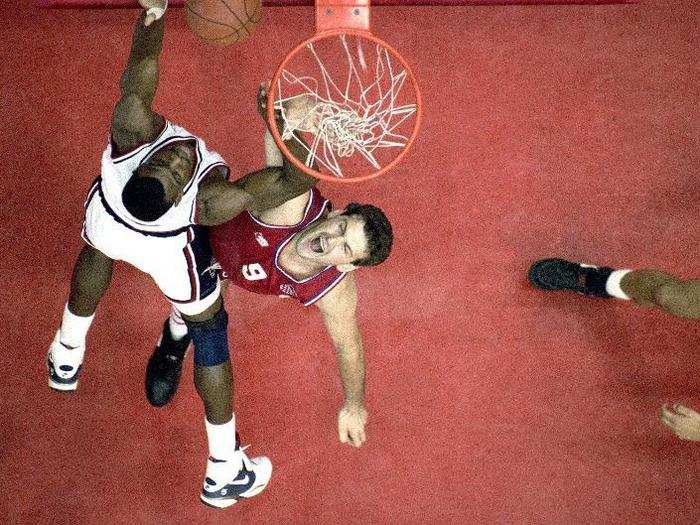
Atlanta, 1996: Boxing legend Muhammed Ali, who by this time was struggling with Parkinson's disease, was asked to light the Olympic flame 36 years after he won gold, as American swimmer Janet Evans looked on.
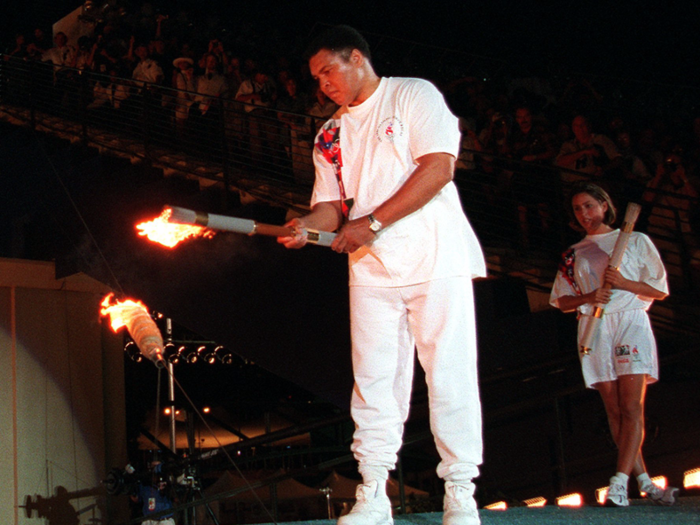
Sydney, 2000: For the first time in Olympic history, North and South Korea walked together in the opening ceremony as a show of solidarity. They waved a flag showing a blue silhouette of Korea as opposed to their respective national flags.
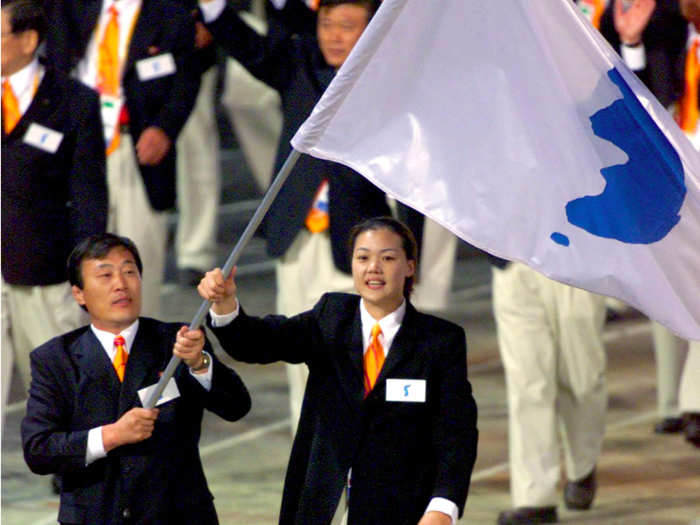
Athens, 2004: The games returned to their home for the first time in over 100 years. Team GB had pinned their hopes of a gold medal on Kelly Holmes. She later went on to win the 1,500 metres as well as the 800 metres, and was named the BBC Sports Personality of The Year.
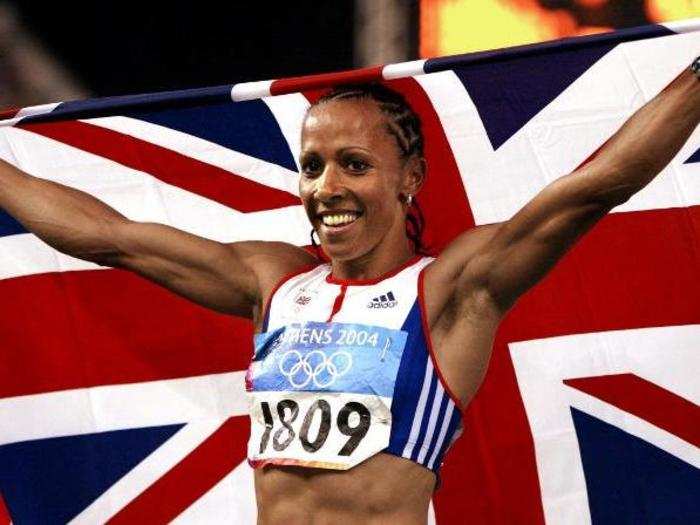
Beijing, 2008: 2008 was the year the world met Michael Phelps. The record-breaking US swimmer won eight gold medals that year, the most ever won in a single Olympic Games. He's now one of the most celebrated sportspeople in American history.
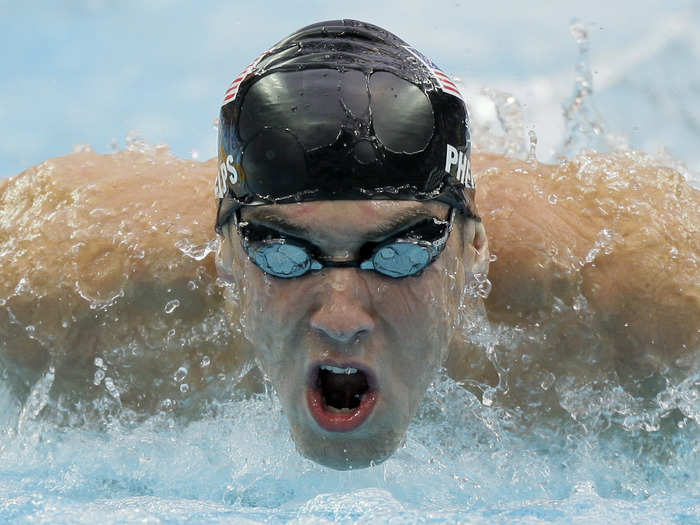
London, 2012: The games returned to London for a third time, more times than any other city has hosted the event. Britain's Mo Farah was one of the greatest success stories to come out of the games. The 33-year-old runner was born in Somalia as the country descended into bloody civil war. He moved to Britain aged eight knowing barely any English, but later went on to become one of the country's most loved athletes.
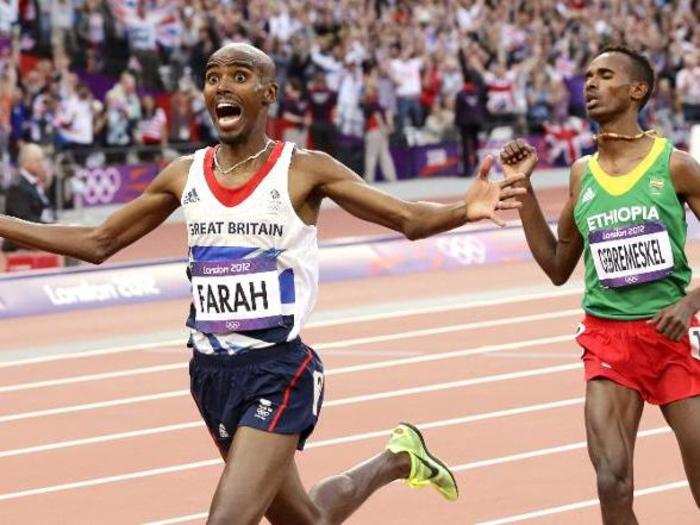
2016: The 2016 Rio Olympics welcomed the first ever team made up entirely of refugees. The Refugee Olympic Team received the biggest applause during the opening ceremony and consists of athletes from South Sudan, Ethiopia, Syria, and the Democratic Republic of Congo. Rose Nathike Lokonyen, originally from South Sudan, carried the team's Olympic flag.
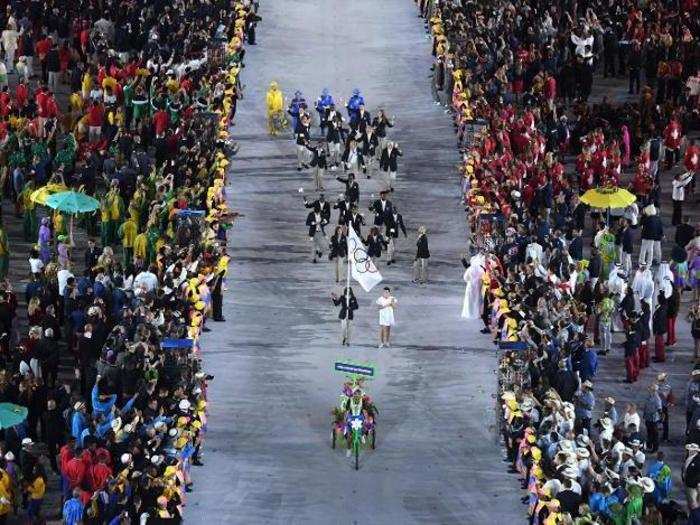
Popular Right Now
Advertisement